The hamentaschen are done and gifts have been prepared for every community member.


The hamentaschen are done and gifts have been prepared for every community member.


Dear children,
We invite you to come meet medical expert Arina Kaganovič who will tell you all about the monster called Corona. We’ll meet at 1:00 P.M. on Sunday, February 28 on the internet. Register and receive URL by sending an email to sofja@lzb.lt
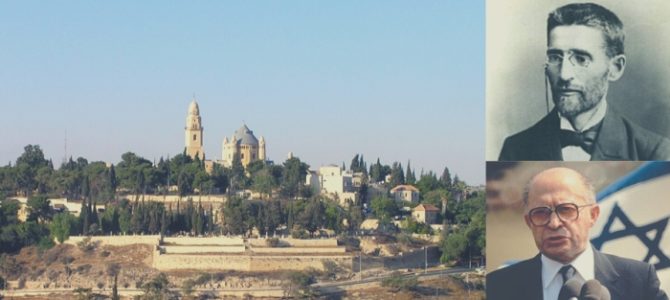
Dear Community members,
We invite you and your entire family to this event “Sabbath Discussion: Zionism among the Litvaks” including discussion of the Vilna Gaon, Eliezer Ben-Yehuda and Menachem Begin followed by the traditional havdalah ceremony at 6:30 P.M. on February 27. You will receive the Zoom address after registering here:

Dear members of the Lithuanian Jewish Community,
Although this year we will celebrate Purim at home, we invite you to share moments from the holiday and to take part in the traditional Purim costume contest.
Don your carnival attire, take a snapshot and send it to zanas@sc.lzb.lt by February 28.
Your photos will be considered for awards in the following categories:
Most original costume
Best family costume
Best mask
Winners to receive valuable prizes!
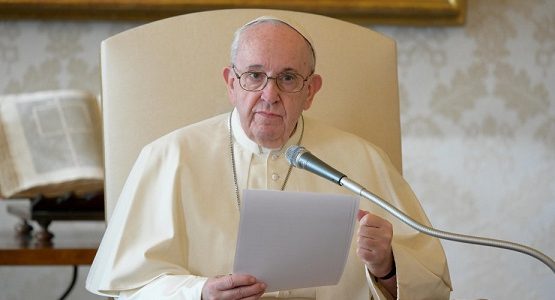
NEW YORK–Today Pope Francis made a Shabbat visit to Edith Bruck, an 89-year-old Hungarian-born Holocaust survivor, at her home in Rome.
“I have come here to thank you for your testimony and to pay homage to the people martyred by the insanity of Nazi populism,” the Pope told her, according to the Vatican.
World Jewish Congress president Ronald S. Lauder applauded the Pope:
“I am deeply appreciative of Pope Francis’s tremendous compassion in visiting Edith Bruck who survived the horror of several Nazi concentration camps, lost her family who were murdered in the Holocaust and has bravely shared her story. The Pope has demonstrated a sincere commitment to both personal kindness for the experiences of others and to the urgency of continuing to draw attention to the inhuman atrocities of genocides including the Holocaust. At a time when neo-Naziism, anti-Semitism and other bigotries are resurgent in many parts of the world, Pope Francis’s moral integrity and sense of history set the standard for other faith, political and community leaders to follow.
“My gratitude goes as well to Mrs. Bruck for her courage in telling the world about her trauma and in dedicating her life to educating people about the horrible truths of the Holocaust. As survivors age, their testimonies become increasingly priceless, and we owe our understanding of the very worst of humankind to the individuals who have taken it upon themselves to bear witness to all they have endured. Through such comprehension, we pray that such evil shall never happen again.”

CNN–A Tennessee resident who was a guard at a Nazi concentration camp during World War II has been deported to Germany, the US Justice Department said in a statement Friday.
Friedrich Karl Berger, a 95-year-old German citizen, was ordered removed from the US in February of 2020 when a US immigration judge determined his “willing service” as a guard of concentration camp prisoners “constituted assistance in Nazi-sponsored persecution,” the Justice Department said.
Berger was eligible for removal from the US under the Holtzman Amendment which prohibits anyone who participated in Nazi persecution from living in the US. The Board of Immigration Appeals upheld the ruling in November of 2020.
Full story here.
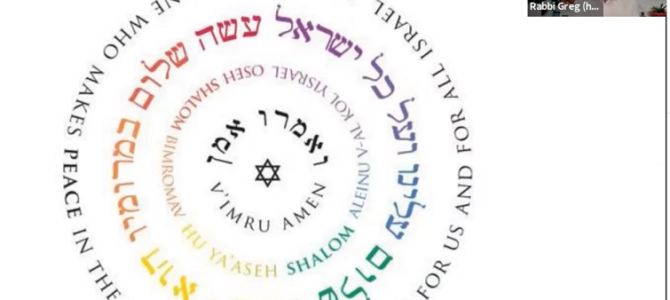
A special joint internet Sabbath celebration was held between Vilnius and Cape Town, South Africa last Friday, February 19.
Cape Town Rabbi Greg Alexander greeted the internet celebrants in both cities and presented Lithuanian Jewish Community chairwoman to those in South Africa.
The Sabbath was ushered in with song. The rabbi and Millian Rivlin sang and played guitar, after which prayers were delivered. Despite the distance between the two cities, communication was almost instantaneous, and it felt as if everyone were in the same room at home.
The vast majority of Jews living in South Africa were and are Litvaks. That affinity was clear during the internet Sabbath.
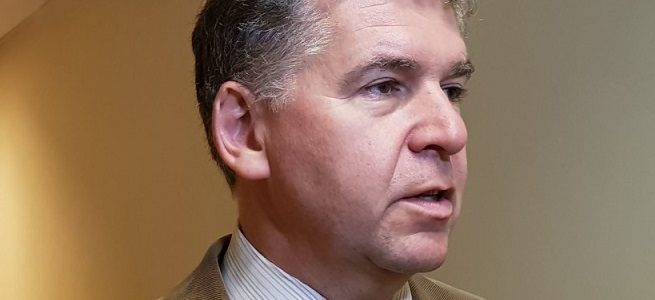
The prosecutor at the Vilnius District Office of Prosecutor has decided not to begin a pre-trial investigation of statements made by member of parliament Valdas Rakutis in his article “International Holocaust Day and Historical Memory.” The prosecutor said the decision was made based on the lack of an act of a criminal nature, a press release said.
The decision not to initiate a pre-trial investigation was made following a statement from the chairwoman of the Lithuanian Jewish Community which indicated historian and MP Rakutis published the article on International Holocaust Remembrance Day on an internet site which allegedly incited hatred against Jews and their people, and possibly engaged in Holocaust denial.
The informant asked the prosecutor to consider whether or not the statements made in the article constituted the criminal act defined in article 170, part 2 of the Lithuanian criminal code, “incitement against any national, racial, ethnic, religious or other kind of group of people,” and article 170-2, part 1, “public approval for international crimes, crimes committed by the USSR and Nazi Germany against the Republic of Lithuania or residents thereof, and their denial or gross trivialization.”
The decision to decline beginning a pre-trial investigation stated the criminal acts defined in article 170, part 2, and article 170-2, part 1, can only be committed by direct intention.
The Lithuanian Jewish Community notes with sadness the death of Bernard Lown on February 16, 2021. He was born in Utena, Lithuania, on June 7, 1921, to Nisson Lown and Bella Lown née Grossbard and lived in Lithuania till he was 14. Bernard Lown passed away following a long struggle with illness at his home near Boston just a few months before his 100th birthday. He made major achievements in cardiology and was the founder of the group Physicians for the Prevention of Nuclear War which was awarded the Nobel peace prize for opposing nuclear proliferation in 1985.
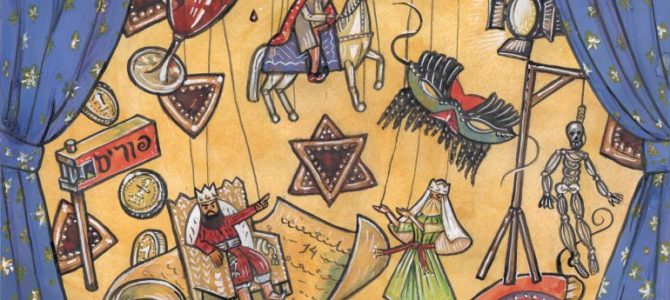
The Lithuanian Jewish Community and the Ilan Club invite parents and children to spend Sunday morning with culinary chef Andžejus Žukovskis. We’ll bake hamentashen, the traditional Purim treat, together. It all begins at 12 noon on Sunday, February 21, via Zoom. To register send an email to sofja@lzb.lt and together with the Zoom code we’ll send you a list of ingredients needed. For more information you may also call Sofja at +370 601 46656.

The Bagel Shop Café will make hamantash available for Purim from February 23 to 25, made in the traditional manner with poppy seeds and raspberry jam. The cost will be 12 euros per kilogram (about 30 to 35 individual hamantashen) and smaller orders are also possible. Please reserve your pastry now or at least by February 23 so we’ll know how many to make. The Bagel Shop Café itself is closed for repairs so customers will be able to pick up their orders in the foyer at the main entrance to the Lithuanian Jewish Community in Vilnius. Pick-up will begin on February 23 and run till February 25, from 12 noon to 4:00 P.M. Payment may only be made by bank card.
Reservations: https://forms.gle/YhmP2nt82uoUALbc8
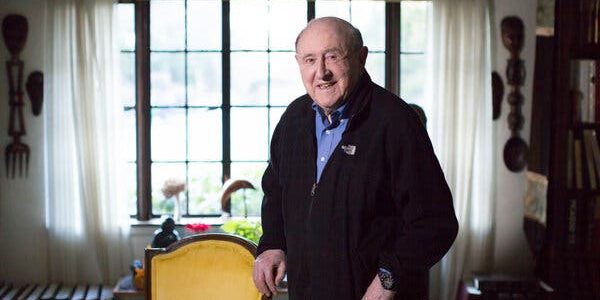
Photo: NYTimes.com
BOSTON (AP)–Dr. Bernard Lown, the Massachusetts cardiologist who invented the first reliable heart defibrillator and later co-founded an anti-nuclear war group who were awarded the Nobel Peace Prize, died Tuesday at the age of 99.
The Boston Globe reported the Lithuanian-born doctor’s health had been declining from congestive heart failure. He died at his home near Boston.
Lown was a professor at Harvard College and physician at Brigham and Women’s Hospital in Boston. He advanced cardiac treatment.
He was one of the first doctors to emphasize diet and exercise in treating heart disease, and introduced the drug lidocaine as a treatment for arrhythmia, the Globe reports. In 1962 Lown invented the direct-current defibrillator, or cardioverter, which uses electric shocks to get the heart to resume beating.
He was also an outspoken social activist, founding Physicians for Social Responsibility in 1960 and later co-founding International Physicians for the Prevention of Nuclear War in the 1980s, the newspaper reports.
The international anti-war group called for a moratorium on testing and building nuclear weapons. They were awarded the 1985 Nobel Peace Prize for raising awareness about the consequences of nuclear war during the height of Cold War tensions between the U.S. and the Soviet Union. At its peak the group had more than 200,000 members and chapters in more than 60 countries.
Full obituary here.
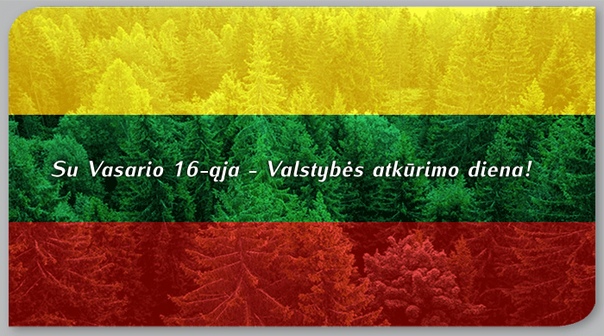
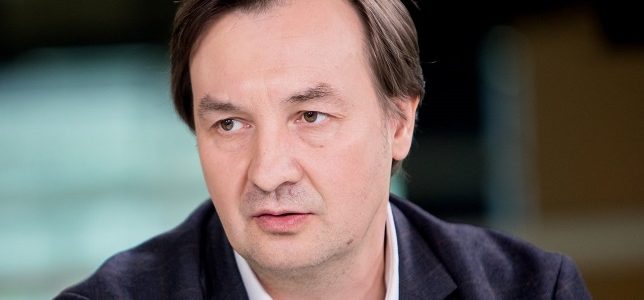
by professor Rimvydas Petrauskas, rector, Vilnius University, for DELFI.lt
Recent discussions on the topic of historical memory and policy have brought to the fore the issue of the role the professional historian plays in shaping the public’s historical memory. This text is about history, historians, historical memory and the historian’s mission.
History and Historians
The noted French historian Jacques Le Goff who died a few years ago spoke about the relationship between history and the present, soberly saying history can at one and the same time be that which connects, and that which afflicts. It can be utilized for the most different ends, to encourage healthy patriotism and to justify the annexation of another country, and those are just two of the more extreme poles. At the same time, Le Goff explained, the discipline of histry should help people live their lives and in communal life, help them navigate between a rich legacy of the past and what is sometimes a dangerous nostalgia.
He knew what he was talking about. In 1942 his teacher Marc Bloch, founder of the Annales School of French social history, had lost his job, books and some of his old friends in occupied France, but authored what is probably the most optimistic explanation of history ever, calling for seeking out historical truth in the face of historical tragedy. This member of the French Resistance was shot two years later by the Nazis.
Full text in Lithuanian here.
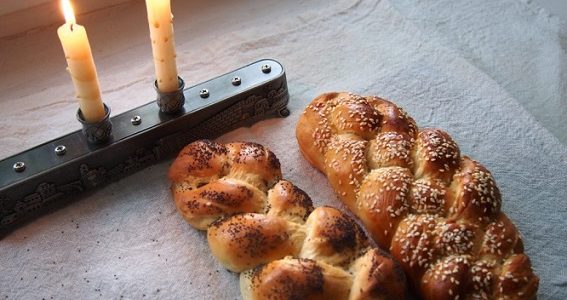
The Lithuanian Jewish Community is planning to hold a virtual Sabbath celebration at 6:10 P.M. on February 19 with Rabbi Greg Alexander from the Temple Israel Synagogue in Cape Town, South Africa. Please register here to receive Zoom credentials.
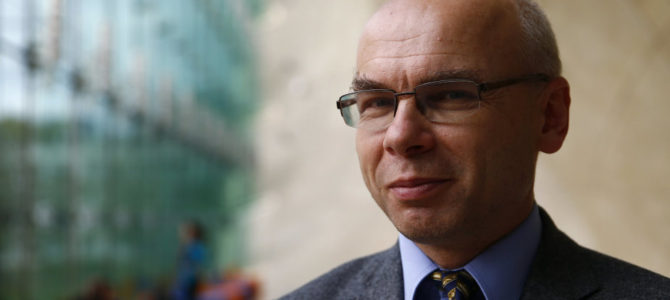
15min.lt

Historian Dariusz Stola says there is a campaign underway in Poland to frighten historians who speak about Holocaust crimes committed by Poles. The result, he says, is invisible: books and articles which are never written. Stola says 10 years ago he was sure it would only get easier to talk about these complex historical events as time passed. Now something has changed, and it might be related to the growth of social media.
Stola is a professor of history at the Polish Academy of Sciences and served earlier as the director of Poland’s Jewish History Museum POLIN.
After five years directing POLIN Stola submitted an application to be rehired and received 11 of 15 votes by judges on the hiring commission, but the Polish minister of culture refused to appoint him director again.
We caught up with Stola a few days after a Polish court ordered two of the country’s leading historians to apologize to the niece of a village alderman who claimed Polish historians Barbara Engelking and Jan Grobowski libeled her relative in the monograph they coauthored where they wrote he was an accomplice in the mass murder of Jews.
Indirect Government Intervention
Aleksandras Feigelsonas has died following a long battle with illness. He was born in 1948. Our sincere condolences to his wife Marina and his daughter on their loss.
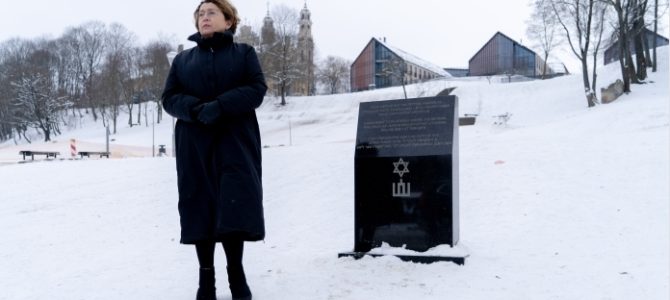
In remembrance of signatories of conscience
Lithuanian Jewish Community chairwoman Faina Kukliansky’s observations on the eve of the 103rd celebration of February 16
We live in good times, incomparable to those which the Lithuanian Jewish community experiences eight decades ago. We live in a time of great achievements and at the same time there is still much to achieve. We live at a time when we still have to explain and defend ourselves, and we do this patiently but resolutely. We live at a time when society is crossing swords over ideas, attitudes and, most significantly, statues. Let this be the tale of two statues which don’t exist.
We are about to celebrate February 16, Lithuania Day, for the 103rd time. When we name the names of the signatories to the Lithuanian Act of Independence, this shows that the date for us is not just an historical day, but the triumph of the personal decision made by specific people whose result–a free and sovereign country–we all enjoy and take pride in. In the context of February 16, let’s also remember another group of people, a group I call signatories of conscience, the people whose decision resulted in hundreds of lives saved.
During the different Holocaust commemorations we often hear people taking pride that over 900 Lithuanians have been named Righteous Gentiles, but I don’t hear their names or their stories. I see the lack of context. And the context is very simple: the citizens of the first Republic of Lithuania, the same people who forged the young state, heard the Jews’ cry for help and responded. Do you think about the fact that generation which hid persecuted Jews on their farms, in their apartments and basements were the same people who created the first Lithuanian Republic? That they are the same generation whose achievements in art, learning and politics we take pride in today, whose deeds and lives we cite today as examples in the creation of the state? They include the family of February 16th signatory and engineer Steponas Kairys, and Lithuanian president Kazys Grinius, and the daughter of M. K. Čiurlionis, one of Lithuania’s greatest artists, Danutė Čiurlionytė abd her husband Vladimiras Zubovas, the family of Lithuanian writer Balys Sruoga, the family of writer Kazys Binkis, and professor Pranas Mažylis, the grandfather of Liudas Mažylis who rediscovered the original Lithuanian proclamation of independence German archives. They include Ona Jablonskytė, the daughter of the founder of the standard Lithuanian language Jonas Joblonskis, and his daughter-in-law advyga Jablonskienė. And not just presidents and professors, but simple village people were able to make the right choice. These are names which are inseparable from the history of Lithuania. Why don’t we want to erect a statues to these people, Lithuania’s signatories of conscience?